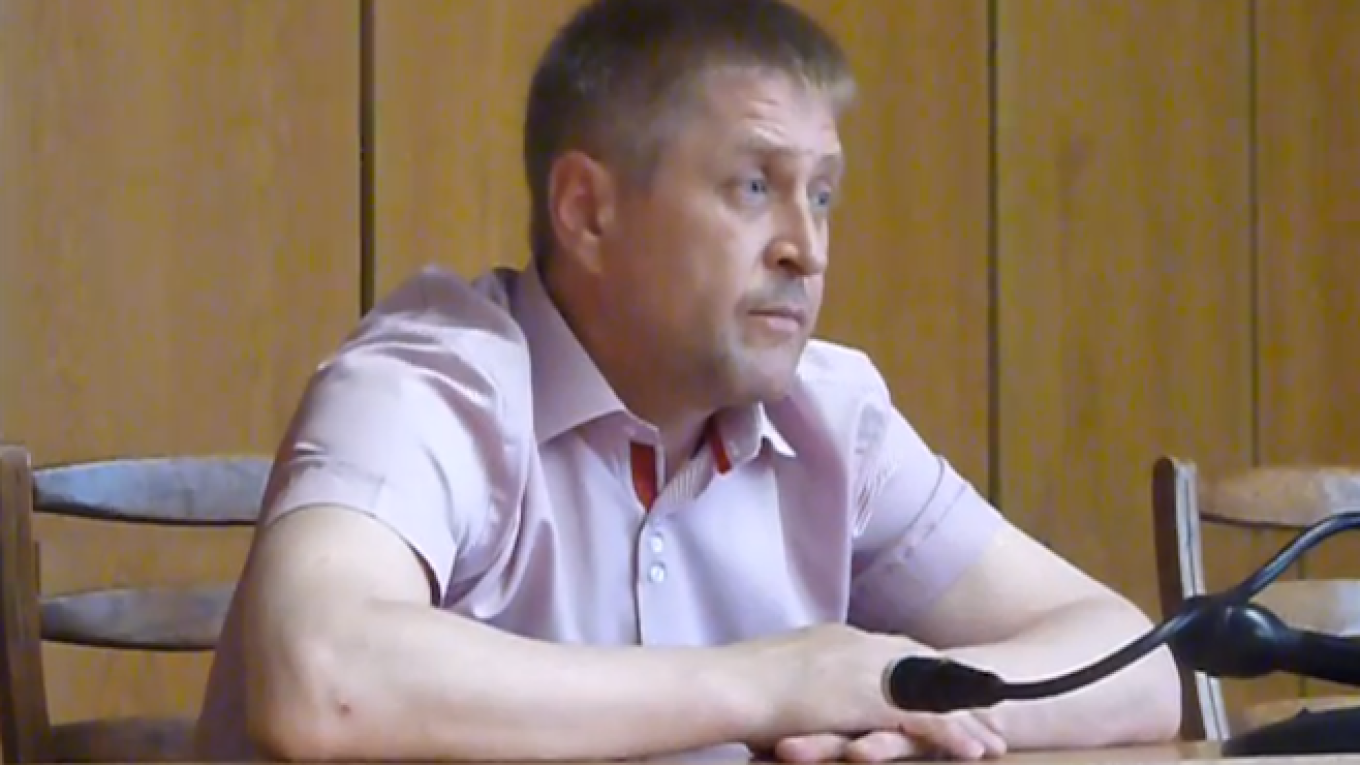OSCE monitors who disappeared in eastern Ukraine may be being held by Chechen fighters who do not report to Ukraine's separatists, the self-styled mayor of Slovyansk has said.
The four monitors, who the European security watchdog lost contact with earlier this week, "disappeared in the Luhansk region," Vyacheslav Ponomaryov, the self-styled Slovyansk mayor, told Ekho Moskvy radio on Thursday.
"I told them not to go anywhere for a week," Ponomaryov said. "But they ignored [it], well, I'm sorry. Especially since they hit upon non-Slavic resistance fighters."
While Ponomaryov did not further identify the group, the only "non-Slavic" force that has emerged in eastern Ukraine recently is a militia of Chechen natives, who have reportedly come from Russia — though Chechnya's leader Ramzan Kadyrov has denied sending or controlling the forces.
Another ethnic group whose representatives have reportedly been involved in the conflict are Cossacks, who Ukrainian Foreign Minister Andriy Deshchytsia blamed for the disappearance of the OSCE team in an interview with Bloomberg television earlier this week, but Cossacks are a Slavic people.
Ponomaryov told Ekho Moskvy that while traveling from Slovyansk, in the Donetsk region, to the neighboring self-styled separatist republic of Luhansk was "not exactly prohibited — it's not prohibited," he warned the monitors "not to go anywhere."
"But it looks like some group did not understand. So we are having this situation now."
The lack of understanding between various separatist factions has become increasingly visible in recent weeks.
On Thursday, fighters from the Vostok battalion — a militia that includes Chechens and Russians — took over the main building of the “People's Republic of Donetsk,” evicting the self-styled separatist administration that had been ensconced there for most of the past two months.
After a period of initial confusion, civilian separatists denied any falling out between the two rebel groups, with a Donetsk republic spokeswoman saying the Vostok fighters had come to help “weed out criminals,” The Washington Post reported, citing a Donetsk Republic spokeswoman.
The Organization for Security and Cooperation in Europe said it had lost contact with its four monitors on Monday, after the team last checked in on a road, heading from Donetsk to Dnipropetrovsk to the west. Luhansk, where Ponomaryov said the monitors went missing, lies in the opposite direction.
Ponomayov told Interfax earlier Thursday that the OSCE monitors — a Dane, an Estonian, a Swiss, and a Turk — were fine and that his administration knew where they were being held. But in the Thursday afternoon interview with Ekho Moskvy, he brushed off concerns about "some four strange people" and any chance that he would help secure their release.
"These people are not held by us," Ponomaryov told Ekho Moskvy, adding that his powers did not extend to freeing the monitors: "I am not a military commander-in-chief, I'm not the head of some service."
The emergence of Chechen and Russian fighters as powerful players in the conflict has stoked fears that Russia may be getting deeper into the fray in Ukraine.
Ukraine's acting president Oleksandr Turchynov said the missile used by separatist fighters to down a transport helicopter on Thursday had also been supplied by Russia, Ukraine's Segodnya reported.
The assault killed more than a dozen Ukrainian servicemen, including a senior security official, and dealt a setback to the Ukrainian government's operation against separatist rebels.
U.S. Secretary of State John Kerry voiced concerns Thursday about Chechen fighters and reiterated calls to Russia to "de-escalate" tensions in eastern Ukraine.
"There is evidence of Russians crossing over, trained personnel from Chechnya trained in Russia who've come across to stir things up, to engage in fighting," Kerry said in an interview with PBS NewsHour.
But Moscow denies accusations of waging a proxy war, and Russian Ambassador to the UN Vitaly Churkin has blamed the disappearance of the OSCE monitors on the Ukrainian government's failure to ensure their security.
See also:
Kerry Calls Lavrov Over Reports of Chechens in Ukraine
OSCE Says Has Lost Contact With Monitors Near Donetsk
A Message from The Moscow Times:
Dear readers,
We are facing unprecedented challenges. Russia's Prosecutor General's Office has designated The Moscow Times as an "undesirable" organization, criminalizing our work and putting our staff at risk of prosecution. This follows our earlier unjust labeling as a "foreign agent."
These actions are direct attempts to silence independent journalism in Russia. The authorities claim our work "discredits the decisions of the Russian leadership." We see things differently: we strive to provide accurate, unbiased reporting on Russia.
We, the journalists of The Moscow Times, refuse to be silenced. But to continue our work, we need your help.
Your support, no matter how small, makes a world of difference. If you can, please support us monthly starting from just $2. It's quick to set up, and every contribution makes a significant impact.
By supporting The Moscow Times, you're defending open, independent journalism in the face of repression. Thank you for standing with us.
Remind me later.


